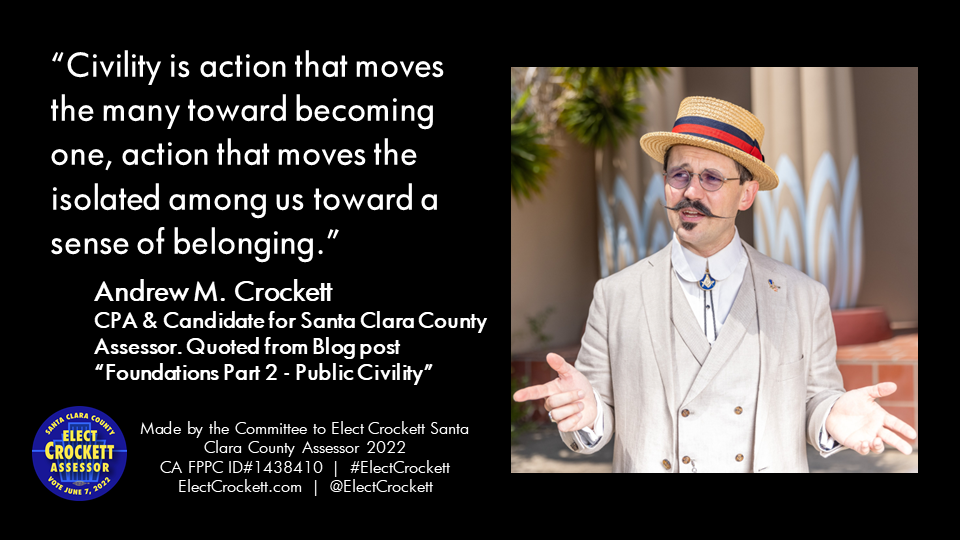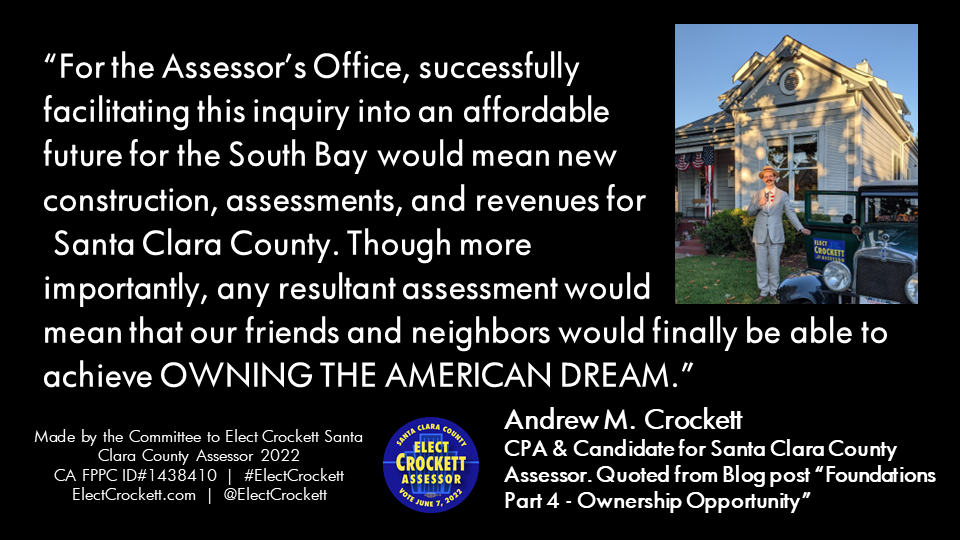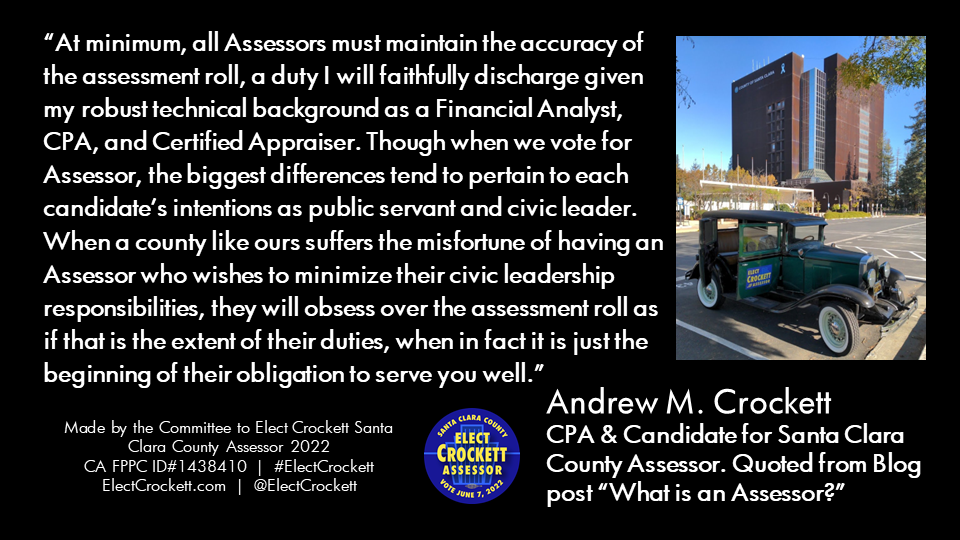Foundations Part 2 - Public Civility
The foundation of a healthy democracy is public civility.
In this historical moment of high partisanship, the Assessor’s race is legally non-partisan. This provides us an opportunity to inquire and imagine what non-partisanship in politics would look like, to envision the dream a positive public political civility.
The traditional motto for our republic, E PLURIBUS UNUM - “out of many, one”, gives insight into the nature of civility. While partisanship aims to pull us apart for the benefit of zealotry, civic activities seek to bring us together. In this light, civility is action that moves the many toward becoming one, action that moves the isolated among us toward a sense of belonging.
As a candidate and as Assessor, I promise to respect and uphold the non-partisan character of the office, ensuring a civil space where all people are welcomed to their Assessor’s Office.
Foundations Part 3 - Climate Stability
The foundation for having a future we can live into is climate stability.
HOW DO WE ACHIEVE CLIMATE STABILITY?
In public discourse, the challenges that climate change create are frequently shown as daunting. I am here to reassure you that this does not have to remain the case. Our path forward is inquiry about the measures and the methods we could use to get a grip on this problem, because what gets measured gets managed.
In the administrative role as Assessor, one promise I can already make on this front is to implement Sustainable Accounting Standards Board methodologies for the Office. This will ensure the Assessor's Office formally recognizes and tracks any negative climate actions it takes so to identify and mitigate them promptly. A key metric for this will be achieving net carbon neutrality for the office.
In the leadership role of Assessor, the opportunity is to lead the inquiry: what would our world with a stable climate look like? How would we achieve such a stable climate? What roles could the Assessor’s Office have in such a world? In what ways can we lead by example? Being curious about what’s possible will open doors to a prosperous future we might never have discovered otherwise.
Foundations Part 4 - Ownership Opportunity
The foundation of prosperity is an affordable future.
WHAT WOULD AN AFFORDABLE FUTURE LOOK LIKE?
If we can talk to each other earnestly and without contempt, and we have a grasp on how to restore our climate, then the path to “A future where anyone who wants to own a home can buy a home” becomes pleasantly possible.
The inquiry then becomes: what would such a “South Bay City” look like? What are the considerations that would shape it? Economically, we understand prices are always at the equilibrium point of supply and demand: what are the contributing factors to supply? To demand? What are the methods and tools that could help us manage these factors?
For the Assessor’s Office, successfully facilitating this inquiry into an affordable future for the South Bay would mean new construction, assessments, and revenues for Santa Clara County. Though more importantly, any resultant assessment would mean that our friends and neighbors would finally be able to achieve OWNING THE AMERICAN DREAM.
What is an Assessor?
What does an Assessor do anyways?
In California, an Assessor maintains the records of all taxable properties, and legally records the values connected with these properties. These values, known as assessments, are used to calculate property tax. The Assessor is responsible for sending this data, known as an assessment roll to the Tax Collector’s Office, which issues tax bills if appropriate to do so. The first California State Constitution of 1850 established the position of County Assessor as an elected office with these responsibilities, such that Assessors would be held accountable to the public for civic leadership as well as providing fair and accurate assessments.
This highlights two main aspects of being an Assessor:
The first is that an Assessor is a manager of employees and an administrator who does not make laws.
The second is that an Assessor is a civic leader at the beating heart of their county’s property market, who can lend their insight to stakeholders for public benefit. This combination provides many opportunities for public service - any Assessor’s public service being determined by who the voters choose to elect as Assessor.
As Assessor Andrew Crockett, my goals for the Santa Clara County Assessor’s Office are:
Provide clarity and assistance for residents selling, buying, or inheriting real estate - especially if they are grappling with these duties for the first time.
While no Assessor’s Office can provide legal advice, ensure Silicon Valley’s Assessor’s Office is a center of public service where any resident with assessible property concerns can book a no-out-of-pocket-cost appointment with a skilled Appraiser.
Innovate to offer remote consultations via video chat.
Make sure employees of the office receive the necessary training to provide this service in a culturally responsive way, to ensure that no relevant information is omitted.
Make assessment roll data available for free to nonprofits, government agencies, research agencies, or other stakeholders who can use the data to fight the housing crisis, improve appraisal models, or generally aid the public good, as is standard for most counties across the United States. Compare this to incumbent Larry Stone, who presently blocks data transparency with a $47,195.00 paywall for Santa Clara County’s Property Characteristics File.
I believe the Assessor should be a civic leader and a natural advocate for and facilitator of data-driven discussions involving property ownership and the decline of homeownership and business ownership here in Santa Clara County. While the Assessor cannot pass laws, just as a Treasurer or CFO has a duty to not just accurately record financial information but report it to relevant stakeholders, the Assessor should have a duty to provide the factual data this office collects to our elected representatives and community leaders. This allows them, in turn, to craft fact-informed, data-driven precision-guided legislation to serve us all.




